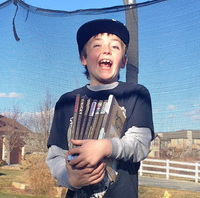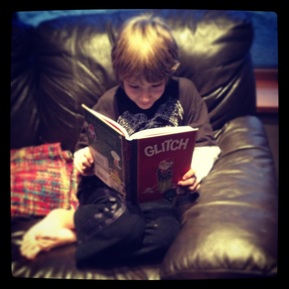When I see the photos of the young people killed this week in Boston, I feel despair. As a mother of three, I can only imagine their families' anguish and the "what ifs" that surely haunt them. What if their daughter or son hadn't been in Copley Square, in that particular spot, on that particular day?
When I see the photos of the killer who still lives, the boy with the curly dark hair and the black-brown eyes, the student that a teacher described as a "lovely, lovely kid," I feel anger and dismay, yes, but also, strongest of all, compassion. There it is, unbidden. Maybe it's because he's about the same age as my sons and looks a bit like them. I find myself talking to him in my mind. Somehow I'm there with him in the days before he goes through with it.
"Tell me what you're thinking," I plead. "Tell me what you're feeling. Talk to me. Talk to us. Talk to the other boy, the 8-year-old who will die. He is not a nationality. He is not an enemy. He is not a symbol of anything. He is a boy with black-brown eyes."
There will be those who say that Dzhokhar Tsarnaev showed no compassion and deserves none in return, especially now that it's "too late." My mind understands this stance, yet my heart still lurches for him. I just keep thinking...the disaffected young men who decide to wield guns or bombs or knives in heinous acts of violence were boys, are boys. And whenever I see a child, I see someone whom we as a society are collectively responsible for.
In Dzhokhar, I see a boy who needed us.
When I see the photos of the killer who still lives, the boy with the curly dark hair and the black-brown eyes, the student that a teacher described as a "lovely, lovely kid," I feel anger and dismay, yes, but also, strongest of all, compassion. There it is, unbidden. Maybe it's because he's about the same age as my sons and looks a bit like them. I find myself talking to him in my mind. Somehow I'm there with him in the days before he goes through with it.
"Tell me what you're thinking," I plead. "Tell me what you're feeling. Talk to me. Talk to us. Talk to the other boy, the 8-year-old who will die. He is not a nationality. He is not an enemy. He is not a symbol of anything. He is a boy with black-brown eyes."
There will be those who say that Dzhokhar Tsarnaev showed no compassion and deserves none in return, especially now that it's "too late." My mind understands this stance, yet my heart still lurches for him. I just keep thinking...the disaffected young men who decide to wield guns or bombs or knives in heinous acts of violence were boys, are boys. And whenever I see a child, I see someone whom we as a society are collectively responsible for.
In Dzhokhar, I see a boy who needed us.


 RSS Feed
RSS Feed
